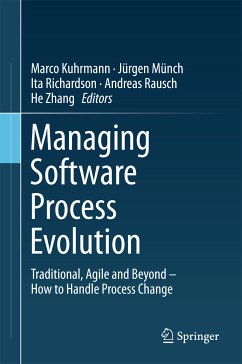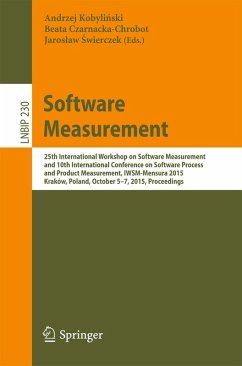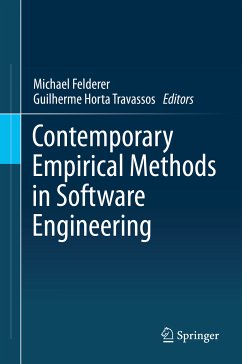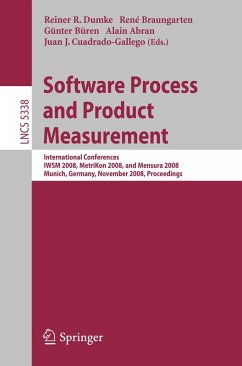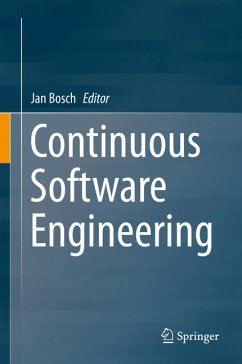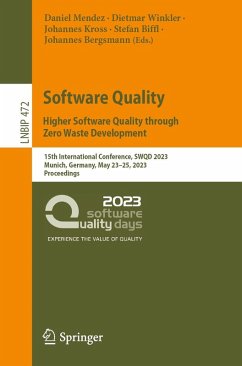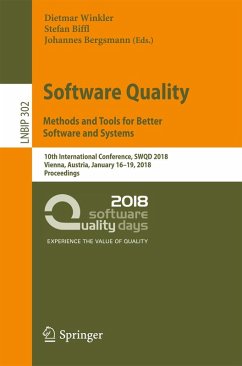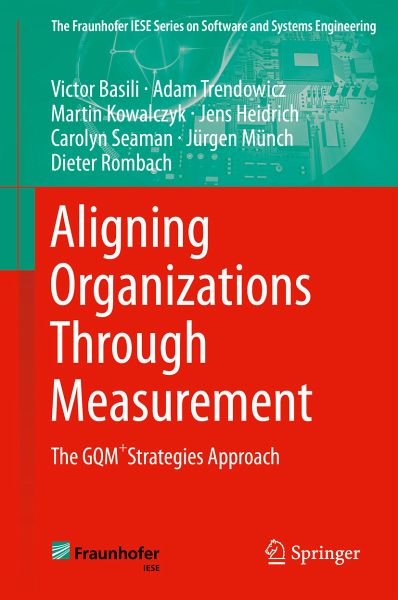
Aligning Organizations Through Measurement (eBook, PDF)
The GQM+Strategies Approach
Versandkostenfrei!
Sofort per Download lieferbar
40,95 €
inkl. MwSt.
Weitere Ausgaben:

PAYBACK Punkte
20 °P sammeln!
Aligning an organization's goals and strategies requires specifying their rationales and connections so that the links are explicit and allow for analytic reasoning about what is successful and where improvement is necessary.This book provides guidance on how to achieve this alignment, how to monitor the success of goals and strategies and use measurement to recognize potential failures, and how to close alignment gaps. It uses the GQM+Strategies approach, which provides concepts and actionable steps for creating the link between goals and strategies across an organization and allows for measu...
Aligning an organization's goals and strategies requires specifying their rationales and connections so that the links are explicit and allow for analytic reasoning about what is successful and where improvement is necessary.
This book provides guidance on how to achieve this alignment, how to monitor the success of goals and strategies and use measurement to recognize potential failures, and how to close alignment gaps. It uses the GQM+Strategies approach, which provides concepts and actionable steps for creating the link between goals and strategies across an organization and allows for measurement-based decision-making.
After outlining the general motivation for organizational alignment through measurement, the GQM+Strategies approach is described concisely, with a focus on the basic model that is created and the process for creating and using this model. The recommended steps of all six phases of the process are then described in detail with the help of a comprehensive application example. Finally, the industrial challenges addressed by the method and cases of its application in industry are presented, and the relations to other approaches, such as Balanced Scorecard, are described. The book concludes with supplementary material, such as checklists and guidelines, to support the application of the method.
This book is aimed at organization leaders, managers, decision makers, and other professionals interested in aligning their organization's goals and strategies and establishing an efficient strategic measurement program. It is also interesting for academic researchers looking for mechanisms to integrate theirresearch results into organizational environments.
This book provides guidance on how to achieve this alignment, how to monitor the success of goals and strategies and use measurement to recognize potential failures, and how to close alignment gaps. It uses the GQM+Strategies approach, which provides concepts and actionable steps for creating the link between goals and strategies across an organization and allows for measurement-based decision-making.
After outlining the general motivation for organizational alignment through measurement, the GQM+Strategies approach is described concisely, with a focus on the basic model that is created and the process for creating and using this model. The recommended steps of all six phases of the process are then described in detail with the help of a comprehensive application example. Finally, the industrial challenges addressed by the method and cases of its application in industry are presented, and the relations to other approaches, such as Balanced Scorecard, are described. The book concludes with supplementary material, such as checklists and guidelines, to support the application of the method.
This book is aimed at organization leaders, managers, decision makers, and other professionals interested in aligning their organization's goals and strategies and establishing an efficient strategic measurement program. It is also interesting for academic researchers looking for mechanisms to integrate theirresearch results into organizational environments.
Dieser Download kann aus rechtlichen Gründen nur mit Rechnungsadresse in A, B, BG, CY, CZ, D, DK, EW, E, FIN, F, GR, HR, H, IRL, I, LT, L, LR, M, NL, PL, P, R, S, SLO, SK ausgeliefert werden.





